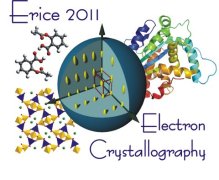In the era of nanoscience, the size of particles to
be investigated gets smaller and smaller but the traditional techniques
used for characterization of materials are becoming inadequate. Electron
Crystallography (EC) is a powerful and sometimes the unique tool to
study crystal structure and properties of nano sized materials. It
is a broad branch of science comprising both academic research and
industrial needs. Materials studied using EC methods vary in size
and nature, ranging from inorganic nanoparticles to biological samples.
Exciting developments such as aberration correctors, dedicated specimen-holders,
highly sensitive cameras, new data acquisition techniques, automated
routines for data collection and new data processing softwares allow
electron crystallographers to solve crystal structures from nano particles
at atomic resolution.
The Course intends to review the structure solution using electron
crystallography methods as well as novel applications; it will be
divided into three major fields:
1) provide a strong background on crystallography in general and electron
crystallography in particular
2) introduce students to upcoming techniques for data acquisition
and data processing as well as to the state-of-the-art electron microscopy
3) cover different approaches for structure solution and derive structure-property
relationship
The emphasis will be given on the following subjects: structural and
charge density studies of organic molecules like pigments and drugs,
protein structures, complicated inorganic and metallic materials in
the amorphous, nano-, meso- and quasi-crystalline state, minerals
and magnetic materials.


